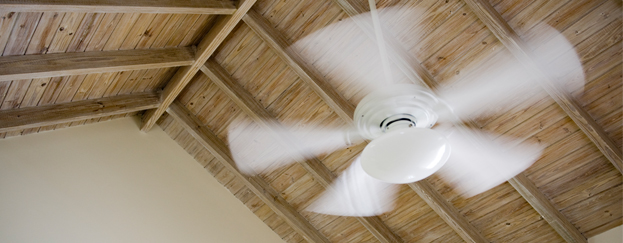Ways to Save
Heating and Cooling Tips:
Since heating and cooling costs account for 40-50 percent of an electricity bill, it's important to know how to control these costs. Try some of these HVAC (heating, ventilation, and air conditioning) tips and see the results.
General Tips
Program your thermostat to 78 degrees in the summer and 68 degrees in the winter. Every degree of difference will affect your bill by 5 percent.
Change your HVAC filters regularly. Dirty air filters make your unit work harder. Keeping a clean filter save you up to 15 percent in energy costs. Set a monthly reminder to check the filter or follow the manufacturer's instructions. Change your filter more often if you have pets.
Use ceiling fans only in the room you are in. Turn ceiling fans off when you leave the room. The moving air makes your skin feel cooler, so it's a waste of energy if you aren't there to enjoy it.
Have your equipment and duct system checked by a qualified technician each year before extreme hot or cold temperatures arrive.
Consider buying new equipment instead of repairing it, especially if your HVAC system is more than 15 years old and needs major repairs. The initial cost of a new energy-efficient unit can be made up in reduced operating costs. Consider installing an electric heat pump.

Heating Tips
- Program your thermostat to 68 degrees or lower during the day. You can set it even cooler at night while you’re sleeping.
- If you have a programmable thermostat, set it to increase the temperature 10-15 minutes before your alarm goes off to break the chill before you get up.
- Make sure return air registers are not blocked by furniture or draperies. Clean vents with a vacuum cleaner or a broom regularly.
- Open drapes or blinds during the day and let the sun help heat your home. Close drapes and blinds on the side of your house that is shaded and at night.
- Close garage doors to keep wind outside.
- Use space heaters sparingly, if at all. Make sure the unit is thermostat-controlled. Only use a space heater if you are in the room, and turn it off when you leave; this is for energy efficiency and safety reasons.
- Keep the fireplace flue closed when the fireplace is not being used.
- Make sure your fireplace is designed to provide heat so it truly keeps you and your room warm. Heated air can escape through the chimney, which means you are losing money and efficiency.
- Run your ceiling fans in the clockwise direction to pull the heated air down to where you are.

Cooling Tips
- Program your thermostat to 76-78 degrees during the day when you are not at home. Every degree you can raise it will help.
- Keep doors closed so your HVAC system doesn't get overworked. You invite hot air into your home every time a door opens.
- Make sure air conditioning vents are not blocked and are opened fully. Floor registers should not be blocked by rugs or furniture.
- Service your AC unit or heat pump to ensure it’s working correctly and efficiently.
- Set the fan on your air conditioner to "auto" instead of "on" to help your unit not work as hard.
- Use ceiling fans when you are in the room to feel cooler. That may allow you to raise the thermostat temperature 1-2 degrees.
- Run ceiling fans in the counterclockwise direction to help keep you cool. Turn off fans when you leave the room.
- Keep leaves and foliage away from your outdoor unit.
- Close drapes and blinds closed during the day to keep the sun's heat out.
- Use light-colored blinds and draperies with a lining.
- Open crawl space and attic vents during summer months to reduce humidity and allow ventilation.
- Grill outside or use slow cookers or pressure cookers to keep from using the oven.

Comfort Advantage is a recognized standard for energy-efficient construction and quality products for the home and business. The benefits of Comfort Advantage are promoted by electric cooperatives who provide electric service to more than 400,000 Mississippi homes and businesses.

